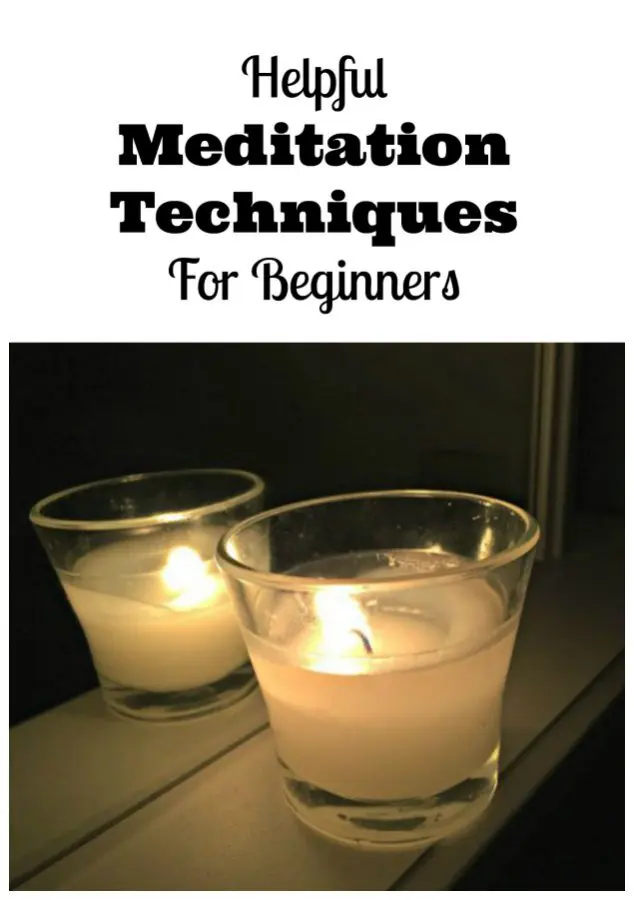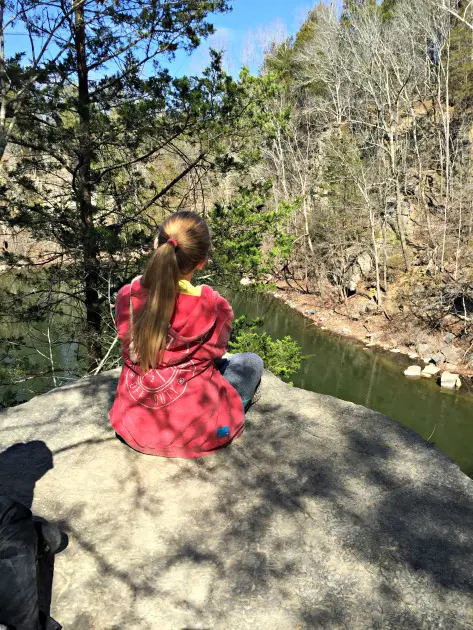We have all been there. One kid can’t find his shoe, another is having a bad hair day, breakfast has not happened yet, and the clock is telling me that we should have left the house ten minutes ago. I have begun to ratchet up the volume of my voice to motivate the troops. The troops (kids) are not inspired to move faster, they are stressed, and so am I. I have had many overwhelming mornings like this one. I needed a different approach. One of the most beneficial things I have discovered to relieve stress is meditation. I am not exactly a “sit in stillness” person, but with a little research and practice I found some meditation techniques beginners will find useful. Here is what works for my kids and I.
Meditation Techniques Beginners Will Find Helpful
- Pick a peaceful place. I find peace outside on the patio or in a garden. However, it can be anywhere that is calming and you won’t be interrupted for the time you are meditating.
- Shake out the body. Stretching allows you to loosen not only your muscles but inner tension and brings attention to your body.
- Find a comfortable seated position that is upright. I encourage my kids to sit with me in a circle. Sit comfortably; you don’t have to do the traditional pose where your legs are folded if it is uncomfortable.
- Begin to focus on breathing in order to slow it down. Breathe in through the nose. Let the oxygen expand your abdomen, not lungs. Deep, calm breathing slows your heart down and relaxes your muscles.
- Watch every thought as it moves through your head. Don’t focus on ignoring the thoughts. Acknowledge them and move on.
- Start small. Children are not going to be able to sit still for 30 minutes straight (honestly, I can’t either). Five minutes is a good start.
- If you still struggle with mediation, you may want to try a guided mediation. You can search on YouTube or try Simple Habit, an award-winning app for daily stress relief with guided meditations.
Why Meditating Can Be Useful:
I have noticed that over the past few weeks the people around me have announced weddings, pregnancies, graduations and even an untimely death. These are all example of everyday life changes. Though special in their own way, they generally bring a lot of stress to our lives as people, but especially as women. A few ways that we can help deal with stress is too take care of our mind and body. My favorite way of de-stressing is by meditating. Meditation brings a sense of peace, allows you to relax, and is even considered healthy.
With constant communication through technology, trying to figure out what to cook for dinner, and remembering if the meeting you have is this upcoming Wednesday or next Wednesday, there’s always a thought running through your mind. For the time you are meditating allow those thoughts to pass by and go out of your mind. Focus on yourself and quiet your mind.
According to the huffingtonpost.com, meditation is known to:
- Lower stress
- Connect with your true self
- Improves focus
- Help regulate emotion and attention
- Lower risk of depression during pregnancy
- Improve sleep
With all these health benefits, you are sure to enjoy these healthy living tips for meditating. Don’t be afraid to try mediation out. You can learn to meditate as you go!
Meditate To Relieve Stress
Meditation is like a muscle. If you practice it, you’ll have strengthened muscle that will help you handle life’s ups and downs. My reaction to everyday stress shifts in a measureable way. I find that I am able to breathe and not react negatively.
A Baltimore school replaced classic detention with meditation. The benefits included a bump in attendance and grades. The kids reported feeling happier and less aggressive. According to Forbes, mindfulness also help during “high-stakes” testing. The students experienced better attention, self-awareness, and reduced anxiety.
Best Meditation Nooks For Beginners
I highly recommend these meditation books for beginners:
- “The Miracle of Mindfulness: An Introduction to the Practice of Meditation” by Thich Nhat Hanh
- This classic book offers gentle guidance on the practice of mindfulness and meditation, making it accessible and easy to follow.
- “Wherever You Go, There You Are: Mindfulness Meditation in Everyday Life” by Jon Kabat-Zinn
- This book is a great introduction to mindfulness and meditation, with practical advice on incorporating these practices into daily life.
- “Meditation for Beginners” by Jack Kornfield
- Jack Kornfield provides a clear and straightforward guide to meditation, with step-by-step instructions and practical exercises.
- “Real Happiness: The Power of Meditation” by Sharon Salzberg
- This book offers a 28-day program for learning meditation, complete with guided practices and tips for integrating meditation into your daily routine.
- “The Headspace Guide to Meditation and Mindfulness” by Andy Puddicombe
- Written by the co-founder of the popular Headspace app, this book is a user-friendly introduction to meditation and mindfulness.
These books cover a range of styles and approaches, so you can find one that resonates best with you. All of these books are available through your local book sellers or my affiliate Amazon link.
Conclusion
Meditation offers numerous benefits for both mental and physical health. Meditation can help lower cortisol levels, the hormone associated with stress, leading to a more relaxed state of mind and body. Regular meditation practice can enhance your ability to concentrate and maintain attention on tasks. Furthermore, meditation can help increase self-awareness and emotional health by promoting a positive outlook on life and reducing symptoms of anxiety and depression.
Am I a serene yogini sitting tranquilly in a field? Absolutely not. I do feel more present and aware of my actions. The stress is still there, I am just shifting how we react to it. I hope you will be able to use some of these meditation techniques beginners will find useful for your family. What is your favorite place to mediate? What are some ways that you manage different types of stress?
Related Posts:
How You Can Help Your Kids Manage Stress


